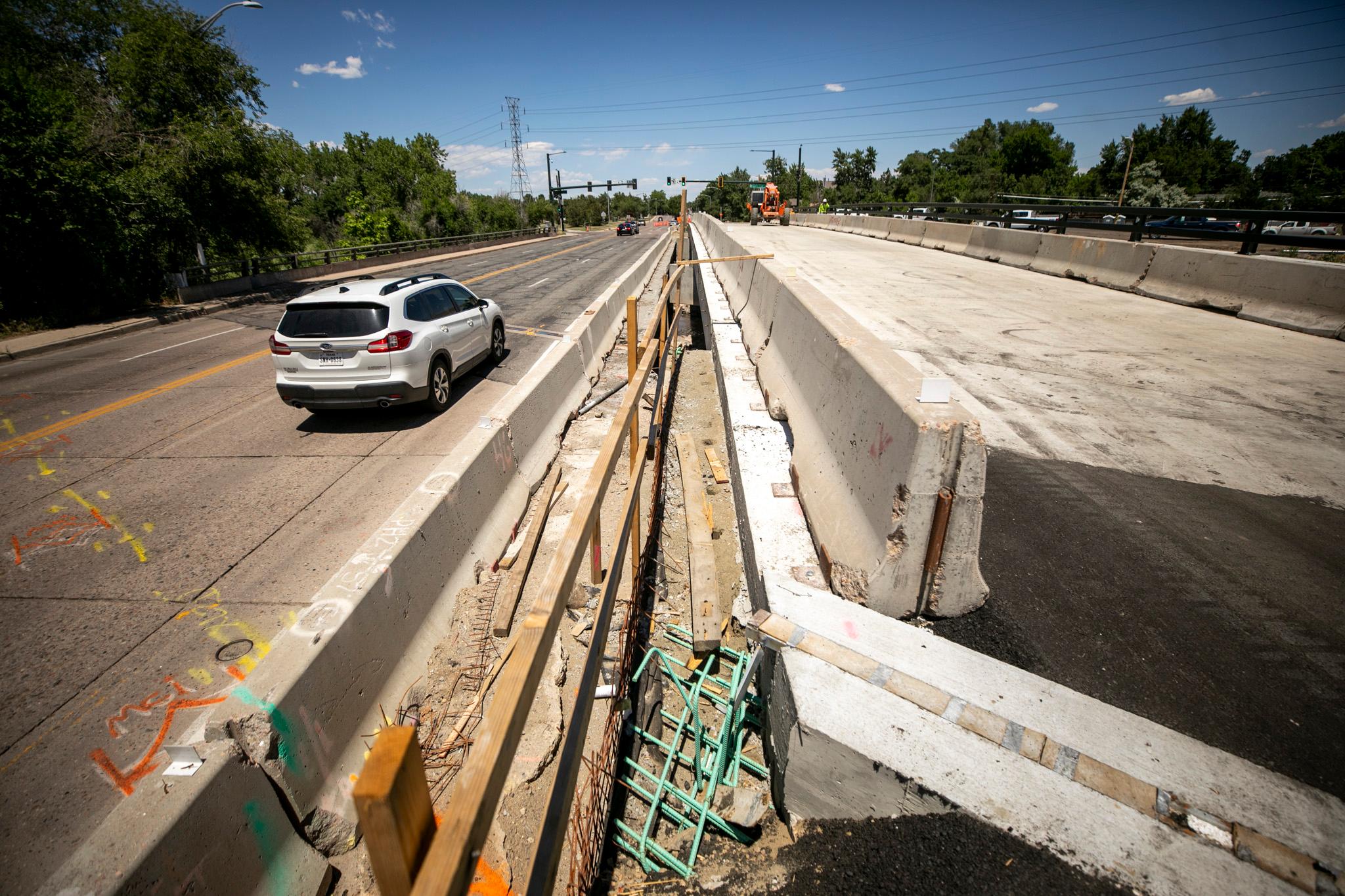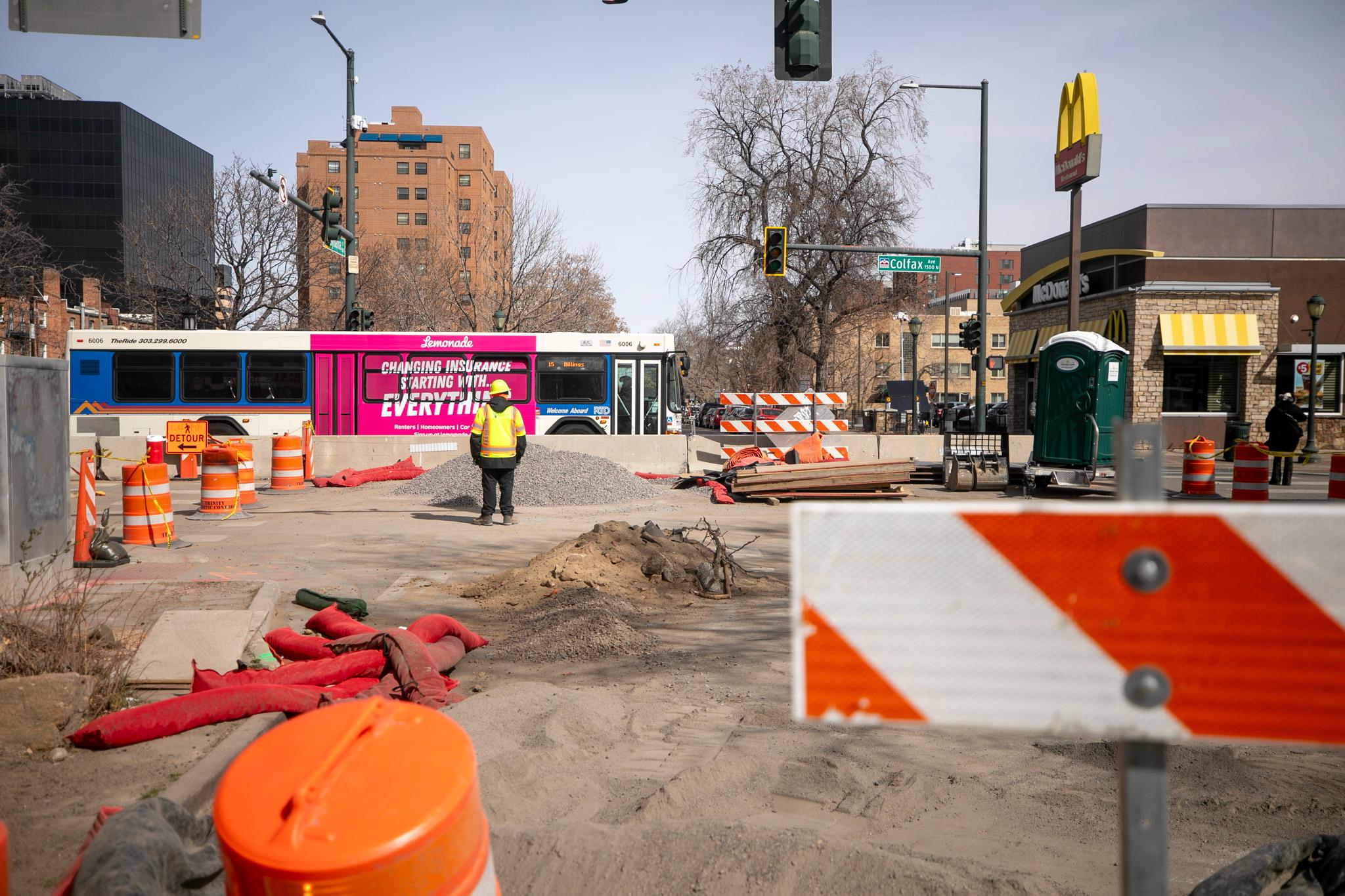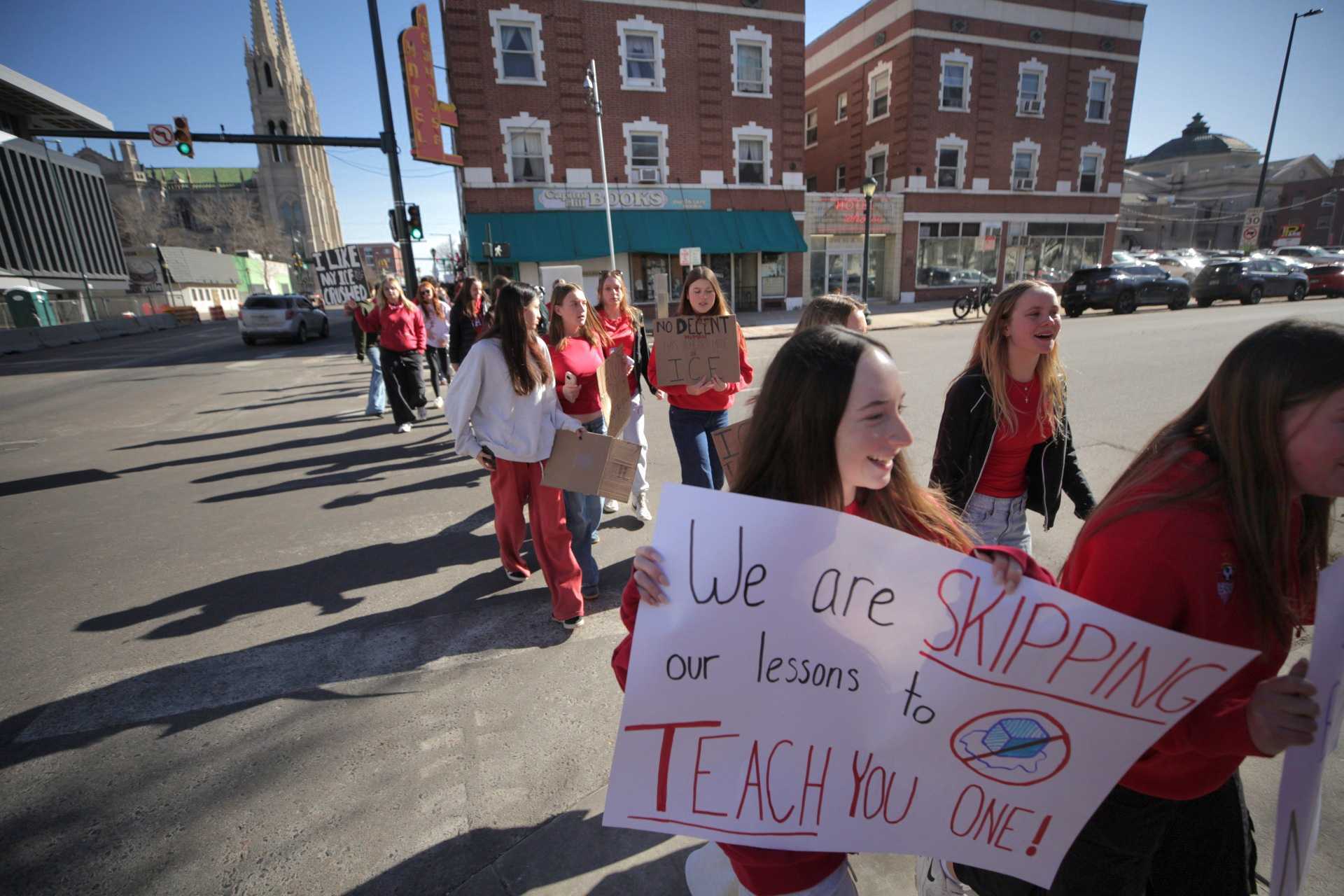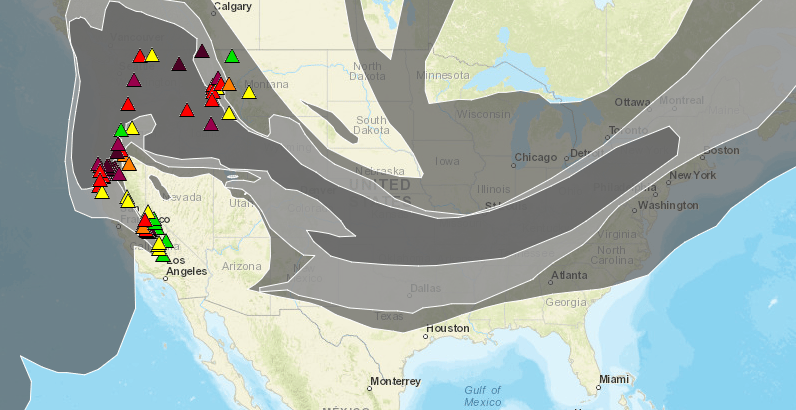
UPDATE, THURSDAY, SEPT. 7: A new map shows much less smoke across the country, but Denver is still clearly under one of the largest plumes.
By Gillian Flaccus and Nicholas K. Geranios, Associated Press
TROUTDALE, Ore. — A growing Oregon wildfire covered parts of Portland's metropolitan area Tuesday with ash and prompted the shutdown of a lengthy stretch of highway through the state's scenic Columbia River Gorge.
It was one of dozens of wildfires burning in western U.S. states that sent smoke into cities from Seattle to Denver — prompting health warnings and cancellations of outdoor activities for children by many school districts.
The National Interagency Fire Center in Boise, Idaho, a federal agency that coordinates wildfire-fighting, said 80 large fires were burning on 2,200 square miles (5,700 square kilometers) in nine Western states.
An Environmental Protection Agency map showing current air conditions as a result of wildfires shows Colorado blanketed in smoke, with Denver under the thickest cover.
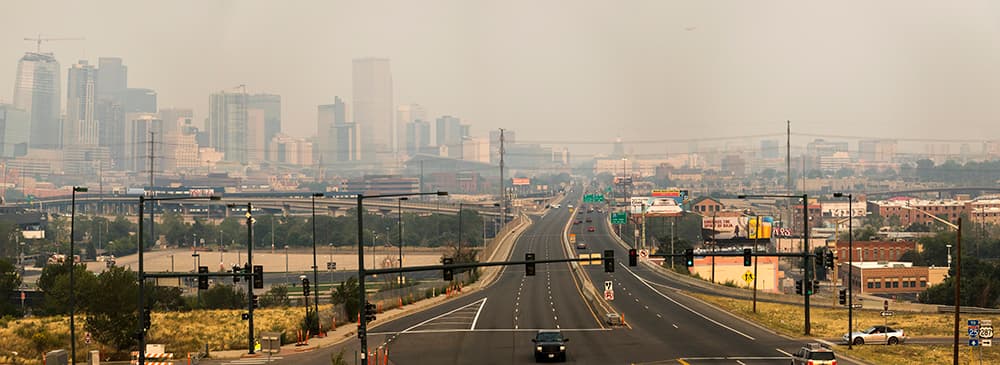
The 16-square mile (41-square kilometers) fire east of Portland forced hundreds of home evacuations. Embers from the fire drifted in the air across the Columbia River — sparking blazes in neighboring Washington state.
The wildfire grew rapidly late Monday and overnight, giving authorities just minutes to warn residents on the Oregon side of the river to leave their homes.
A closure of one section of Interstate 84 because of thick smoke and falling ash was extended 50 miles (80 kilometers) east of Portland because flames reached the roadway, said Dave Thompson, a spokesman for Oregon's Department of Transportation.
"If it jumps the road, you'd be driving through a wall of flame," he said. "It's just not safe."
People in Oregon covered their faces to shield themselves from the smoke and the ashes falling on them.
"You can't really stand outside without getting rained on" by ash, said Joanna Fisher as she walked to work at a Troutdale, Oregon naturopathic clinic with Calla Wanser, who was wearing a red bandana around her mouth to keep the ash out of her lungs.
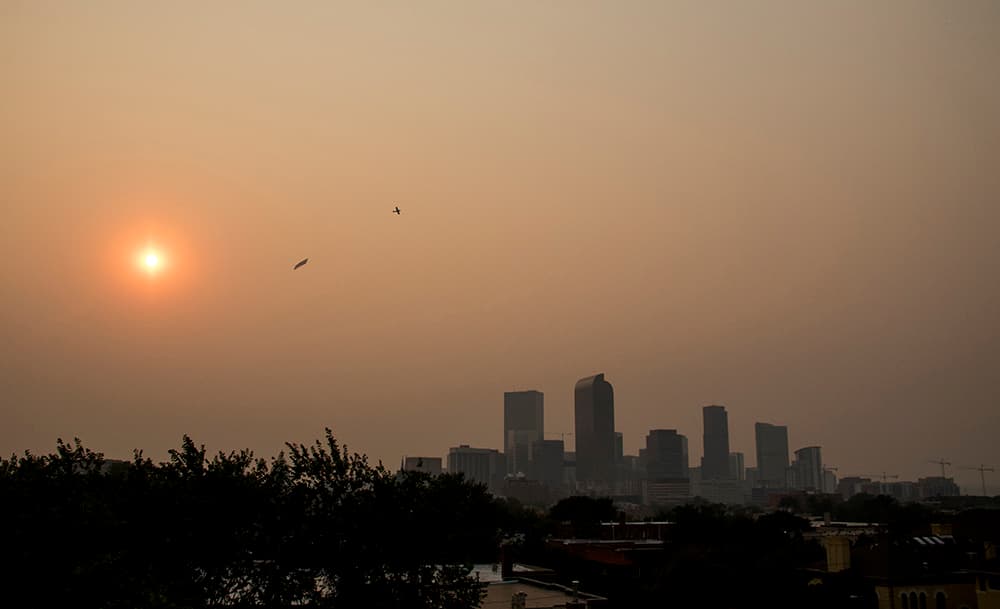
Elsewhere, a fast-moving wildfire in northern Utah swept down a canyon Tuesday morning — destroying structures, forcing evacuations and closing highways.
A least one home burned and more than 1,000 people were evacuated as high winds fed the flames in the canyon north of Salt Lake City. Thick black smoke closed parts of two highways as firefighters struggled to fight the blaze fueled by winds gust at up to 40 mph.
A fire in Montana's Glacier National Park emptied its busiest tourist spot as wind gusts drove the flames toward the doorstep of an iconic lodge.
Lake McDonald Lodge, a 103-year-old Swiss chalet-style hotel, sits on a lake as the famed Going-to-the-Sun-Road begins its vertigo-inducing climb up the Continental Divide, making it an endearing park symbol for many visitors.
Outside California's Yosemite National Park, a wind-fueled fire made its way deeper into a grove of 2,700-year-old giant sequoia trees on Labor Day. Officials said the fire had gone through about half the grove but had not killed any trees.
Giant sequoias are resilient and can withstand low-intensity fires. The blaze burned brush and left scorch marks on some big trees that survived, said Cheryl Chipman, a fire information officer.
Elsewhere in Northern California, a fire destroyed 72 homes and forced the evacuation of about 2,000 people from their houses. The fire burned 14 square miles (36 square kilometers) in the community of Helena about 150 miles (240 kilometers) south of Oregon.
In Washington state the U.S. Department of Defense has agreed to assign 200 active-duty soldiers to help fight a wildfire.
Civilian firefighting commanders said Tuesday the soldiers from Joint Base Lewis McChord, Washington, would undergo four days of training and then be sent to a complex of 14 wildfires in the Umpqua National Forest that have burned 47 square miles (120 square kilometers).
And a wildfire burning near Mount Rainier National Park in Washington state grew to more than 29 square miles (75 square kilometers) and heavy smoke blanketed many cities in Washington state.
Mandatory evacuations were announced for the fire near Mount Rainier, including the Crystal Mountain ski resort, which closed Monday because of smoke.
The air quality in Spokane, Washington, was rated as hazardous Tuesday morning. The National Weather Service says it was likely to get worse as wind shifts bring in smoke from fires in Canada, Montana, Oregon and Washington.
People in the Spokane, Washington, region were advised to stay remain indoors.
Air quality alerts were issued for parts of Idaho as well.
In Oregon, people living in about 700 homes in and around the Columbia River Gorge have been forced to evacuate the area. Others have been warned to get ready as flames burn trees and brush in one of the state's biggest tourist attractions.
"The Gorge is our crown jewel and it's our playground — and we're very, very sad," said Multnomah County Board of Supervisors chairwoman Deborah Kafoury.
Associated Press writers Phuong Le in Seattle, Matt Volz in Helena, Montana, and Sudhin Thanawala in San Francisco contributed to this report.







